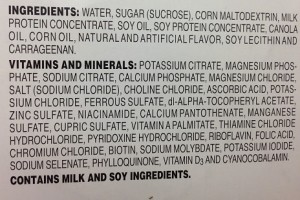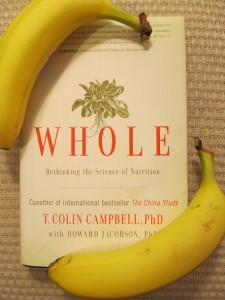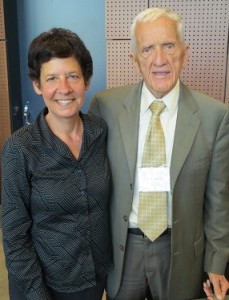
This ironic sign embodies the reductionist world view. This supermarket is giving away free Lipitor, and advertising this bounty on a sign right next to a promotion for a sale on meat, chicken, and processed junk food. Yet no one realizes the connection between the two signs
Why Whole Is the Must-Read Nutrition Book of Our Century
If you read only one book for the entire rest of your life, Whole: Rethinking the Science of Nutrition, should be it. T Colin Campbell, PhD, the book’s pioneering author, shatters the current ways of thinking about nutrition with a compelling blueprint for a revolutionary alternative.
Here are three reasons to put aside whatever else you are working on, go out or online and get hold of Whole now, and read this groundbreaking work.
WHOLE WILL TRANSFORM YOUR UNDERSTANDING OF NUTRITION
At its core, Whole aims to revolutionize your understanding of food and nutrition. You may be wondering about questions such as:
- Which foods are magic bullets for vibrant health?
- What are the most essential nutrients?
- If I have a specific illness or risk factor, which foods are most effective for healing?
- How can I make sure I absorb all the nutrients in the foods I eat?
Guess what. These are the wrong questions to be asking!
Dr. Campbell shows you these are reductionist questions that spring from a paradigm (way of seeing the

This “liquid nutrition” meal replacer is based on the reductionist idea that whole foods can be duplicated, even surpassed, by a manufactured conglomeration of a few chemical nutrients
world) that breaks food down into its individual components, studying each in isolation in a simplistic one-cause-one-effect model.
Your body does not work that way. For example, the amount of a food nutrient that is absorbed depends very much on the amount your body needs. Once in your body, that nutrient interacts in intricate ways we don’t even begin to understand with thousands of other components of your biochemistry, which changes from second to second. All foods are webs of tens of thousands of interlinked substances, and it’s a mistake to focus on one or a few of these since they all interact.
Just as destructively to understanding how to achieve health, science gives high prestige and lots of funding to genetic research. The accepted belief is that tinkering with genes that have evolved over billions of years is a high-tech way to cure disease.
Such reductionist approaches are profoundly disempowering. You must rely on medical specialists. No one, not even a PhD researcher, can keep up with more than a tiny fraction of research in specialties that grow increasingly narrow. You may believe DNA is destiny, and you have no good way to rescue your health from a “bad” genetic inheritance.

Watermelon is a delicious and healthy whole plant food with thousands of nutrients we don’t even begin to understand. This display reduces this desirable food to a vitamin delivery system for two nutrients, illustrating the reductionist idea we should eat specific foods for specific nutrients
The message of Whole is enormously hopeful. Your body is a complex, self-governing system that has a mind of its own on how to absorb and use the thousands of nutrients in food. Every part of your anatomy and biochemistry is intricately connected to other parts and to the whole system that is you.
Tinkering with your body to treat each individual organ or illness with its own compartmentalized strategy has to backfire, causing more problems than it solves. However, a wholistic approach centered on a whole foods, plant-based diet can prevent your less desirable genetic potential from ever getting expressed and is the basis for achieving and maintaining balanced functioning. By feeding your body the food it was designed to thrive on, you address the root causes of illness, not just the symptoms.
WHOLE WILL TRANSFORM YOUR UNDERSTANDING OF THE U.S. HEALTH CARE SYSTEM
Whole shows that the U.S. healthcare system is really a disease-care system governed by a reductionist framework. The book describes how major players are compelled by the system’s structure and incentives to distort science and treat disagreement as heresy. The key problem is that the central goal of the system is to expand profits, not your health. The players include not just industry, but government, academia, media, and even some revered nonprofits whose stated purpose is to wipe out specific diseases. Subtle power, not illegal bribes, maintains the status quo.
Even top scientists must limit themselves to reductionist approaches to obtain a share of limited research funding. This reductionist model is ideal for testing drugs and surgical interventions, producing a treatment toolkit that has medications and surgery as the only options for “health.” The cost of this profit-based system continues to explode, bankrupting the U.S. and many of its citizens.
Dr. Campbell makes it clear many of the scientists, physicians, and officials caught up in this reductionist
web are well-intentioned and caring. They truly want to help you. They want to win the war on disease. The problem is, the profit-driven system, which restricts the questions asked and possible solutions considered to those most advantageous for medical industries, puts blinders on the quest for real, affordable solutions.
When you understand how the system operates, your world will expand. You will be able to effectively question the “solutions” recommended by mainstream medicine. A whole foods, plant-based diet will become the springboard of your return to health and ability to advocate for real change in society. You will be able to answer questions on your choices to help enlighten others.
WHOLE IS ENGAGING AND WELL-WRITTEN
You may be thinking that Whole is a must-read, but dread slogging through chapters of dense, confusing scientific jargon written for PhDs. But, on the contrary, Whole is aimed at readers with no particular science background or vocabulary. Not only is this book clearly written, but it uses metaphors and compelling images to deepen your understanding. The wording is memorable and quotable.
Stories of Dr. Campbell’s life and family engage you. He shares his childhood, educational, and professional experiences that led him to the wholistic world view he paints in his book. Most vividly, the force of Dr. Campbell’s opinions and personality infuse the writing. You get to know his curiosity, honesty,

Whole is deeply honest book that will transform your understanding of nutrition, health, and the U.S. health care system
frustration, anger, caring, love, and hope. Far from being a dry science book, Whole is the personal story of the most brilliant nutrition researcher of our times, infused with the drama of life and death so bound to our food choices.
Whole transforms the science of nutrition the same way that the theory of relativity transformed physics, by proposing a new way of looking at the world. The major difference is that Dr. Campbell offers a can’t-put-it-down reading experience.
If you really don’t like to read, or want to supplement your understanding of the book by seeing Dr. Campbell talk about his work, don’t miss his key role in the documentary Forks Over Knives.
Intrigued? Now you can use our Whole Foods Blog Finder to target informative, fun postings on whole foods, plant-based diets. Quick information at no cost!
Blog posting by Janice Stanger, Ph.D. Janice authored The Perfect Formula Diet: How to Lose Weight and Get Healthy Now With Six Kinds of Whole Foods. The book describes a whole foods, plant-based diet plan that follows the principles of Whole. Disclosure: Janice paid for her copy of Whole: Rethinking the Science of Nutrition and has no financial connection to Dr. Campbell. She is, however, a long-time admirer of his vision and has the deepest respect for his integrity.
Tags: Forks Over Knives, getting healthy, making a difference now, nutrition facts, Plant-based nutrition, reductionism, T. Colin Campbell, Whole, whole foods plant-based diet, wholism





